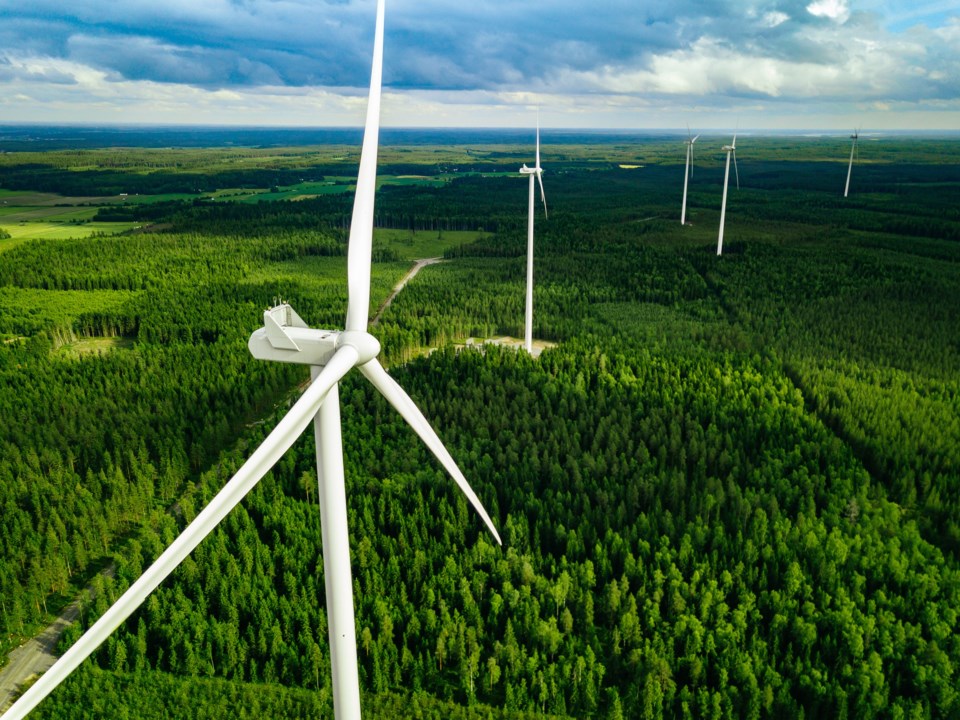The B.C. government said it is tendering a sweeping set of calls to build new energy projects—including wind, geothermal, hydro and battery storage facilities—in a call to power poised to vastly expand the province’s capacity to generate electricity.
The latest announcement comes just five months after the government released a list of successful applicants for BC Hydro’s 2024 call for power—the first in 13 years—which seeks to provide 5,000 gigawatt hours of electricity a year.
The second call to power would double that output—together providing enough electricity for a million homes, Energy and Climate Solutions Minister Adrian Dix said Monday.
“This is our moment,” he said. “It’s time to get to work and we are going to do it.”
Unlike the previous call to power, Dix said the latest request for infrastructure will put no limits on generation capacity of individual projects. Together, the two calls of power will increase the province’s electricity capacity by 16 per cent.
B.C. has moved quickly in recent weeks to introduce a number of new bills that would speed up the approval and construction of infrastructure projects – from transmission lines to hospitals and schools.
The speed and scope of the legislation has raised concerns among some critics.
Last week, BC Conservative shadow minister of energy Larry Neufeld said this flurry of infrastructure bills amounts to a “power grab.”
An MLA for Peace River South, Neufeld said the proposed law is an echo of the NDP's U.S. tariff response bill put forward in March but later walked back after critics said it gave too much power to the Premier’s Office. Instead of one piece of legislation, Neufeld said the government now appears to be carving up the previously proposed law into several bills.
“[This bill] expands that same power grab,” said Neufeld.
The Union of BC Indian Chiefs has also raised concerns the infrastructure bill announced last week would water down environmental safety and could steamroll Indigenous rights.
On Monday, Minister Dix said multiple times the projects would be a way to expand clean energy and empower First Nations communities.
He said the NDP government is also putting out a request for expressions of interest to build firm electricity technology to meet peak demand and keep rates stable alongside wind and solar projects. Firm electricity technologies include geothermal, hydro and large-scale batteries to store renewable energy.
“It’s power we need to build growing opportunities in our economy,” said Dix.
The minister also announced a call for expressions of interest to improve energy efficiency and reduce electricity costs.
Another $12 million will be invested in the B.C. Innovative Clean Energy Fund as part of a targeted three-year project to back locally made clean-energy technology.
Dix said the province is also working to streamline the process to faster and more cheaply connect homes and businesses to the grid.
Monday’s announcements are on top of BC Hydro’s current $36-billion 10-year capital plan to expand and reinforce its electricity infrastructure.
Clean Energy Canada’s Evan Pivnick praised the announcement, saying recent polling from the group shows the average B.C. voter supports green objectives to target rising temperatures, including ramping up renewable energy and expanding household electrification.
“The province has also long grappled with perhaps the worst affordability crisis in the country,” said Pivnick in a statement.
“Affordability is a long-term problem requiring long-term solutions, and clean energy paired with household electrification provides exactly that: truly sustainable savings.”

